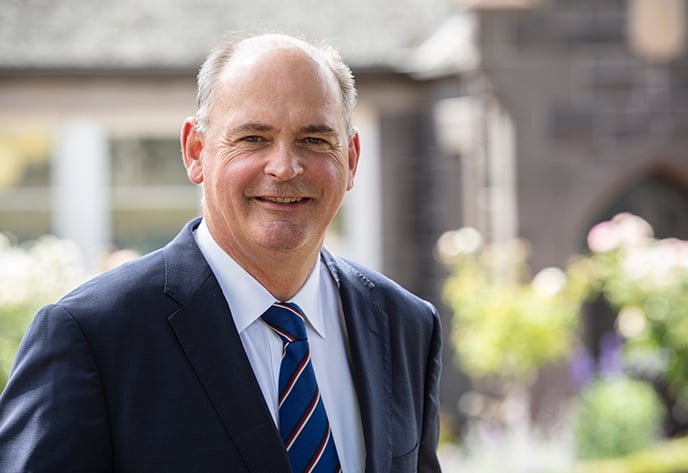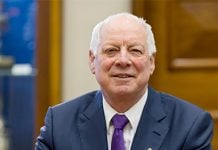The COVID-19 pandemic has presented us all with challenges and caused us to think differently about our lives.
At Melbourne Grammar School, the most obvious impact has been on our educational program. All students experienced periods of off-campus learning during the year, with some in lower secondary remaining in this mode for more than 21 weeks. Classroom activities were modified with considerable success, but many co-curricular activities such as theatrical productions, sporting competitions and outdoor experiences were cancelled.
In true Melbourne Grammar style, our community collectively adapted and achieved great outcomes under difficult circumstances. Almost all students managed situations they might have previously thought not possible and, as a consequence, developed a stronger sense of independence, confidence and resilience.
So what have we learnt from our COVID-19 off-campus experience? Some people now think that traditional schooling can be completely replaced by an online approach. I disagree. Yes, we have proved that off-campus learning can be done successfully in short bursts, but learning is a deeply social experience.
This year, we have appreciated that learning, whether at school or online, is where a journey of discovery is shared between the teacher and their students, with problem solving, group work, discussion and debate lying at the core of this paradigm. Clearly, this is better done on campus and in person.
A logical step from this is then to consider what is the purpose of homework? Should it shift from the current common practice of asking students to simply finishing classroom work to a different approach? Perhaps, instead, we should be asking them to undertake more straightforward knowledge acquisition tasks at home, such as watching a video or reading source material, in preparedness for a robust interpersonal learning experience in the classroom the next day. Or perhaps the answer lies somewhere in between.
On-campus social engagement has other benefits. For truly effective pastoral care to be in place, staff need to really know and understand their students. To achieve this, face to face social interaction is essential. Body language and other non-verbal cues offer teachers insights into students’ feelings and emotions. These don’t always translate well over an internet connection.
Relationship building has been altered in other ways as well. Our global outreach activities have soared through Webex this year, with a clear indication from teachers and students that they would like to do more in the future. Student, parent and teacher interviews occurred with all three parties linking from different parts of Melbourne, Victoria or the globe, and we were able to hear from speakers and collaborate with peers located in countries far away. It seems likely our new approach to engagement has merit for our educational future.
Changes to the teaching and learning pedagogy at Melbourne Grammar School will not come about without consultation, research and our own professional debates and discussions. What is important is that we consciously set about recognising the best of the online and on-campus learning models and apply them in our school in age and stage appropriate ways.
This year may not have been what we have expected, but I am proud of the creativity, courage and kindness demonstrated by our students, teachers and parents every day. What’s more, our community has largely progressed through this difficult year with grace, dignity and care for each other. I look forward to what 2021 will bring.
Philip Grutzner
Headmaster



